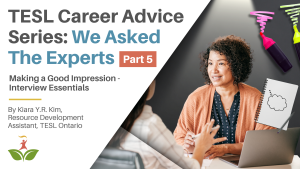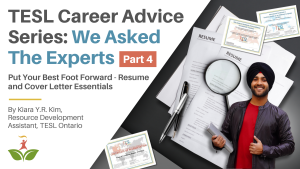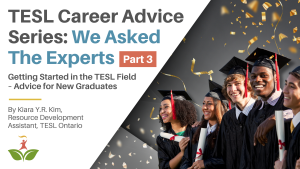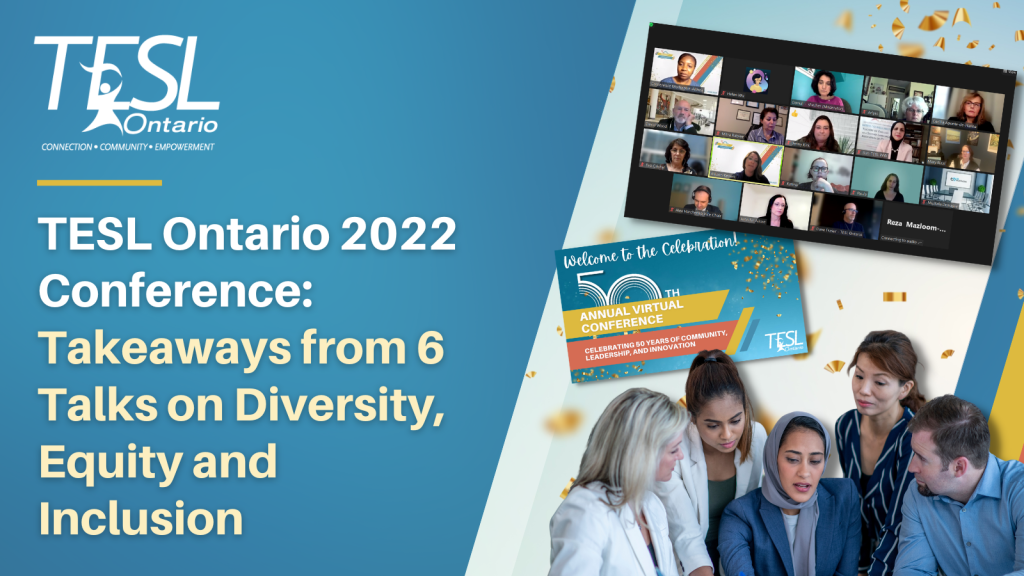 The language training field spans a variety of teaching sectors from government funded LINC and Adult ESL to College and University EAP and ESL, as well as private sector language schools, career colleges and tutoring agencies. The job market in this field is vast, immensely competitive and at times difficult to navigate.
The language training field spans a variety of teaching sectors from government funded LINC and Adult ESL to College and University EAP and ESL, as well as private sector language schools, career colleges and tutoring agencies. The job market in this field is vast, immensely competitive and at times difficult to navigate.
Thousands of new graduates, internationally trained language teachers and experienced educators alike seek employment in the field of English language education each and every day. In this sixth installment of our blog series designed to help educators in our community find success in their career journey, TESL Ontario has reached out to eight (8) Ontario hiring managers across various sectors in our field and asked them to share some insights on what kind of professional development they value. Continue reading









